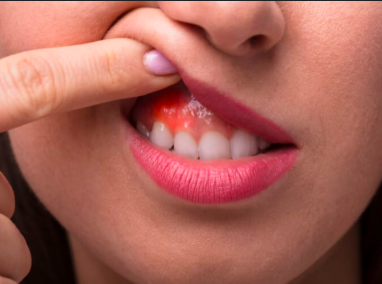Concerns such as cavities and gum disease are preventable with the right approach. Regular dental check-ups with your dentist and a consistent oral hygiene routine may reduce the risk of these conditions. Here are practical strategies to protect your teeth and gums and prevent dental issues:
Maintain Oral Hygiene
A well-rounded oral hygiene routine is key to preventing tooth and gum problems. Start by brushing your teeth twice daily using fluoride toothpaste. Fluoride strengthens tooth enamel and helps protect against decay. To brush effectively, use a toothbrush with soft bristles and follow small, circular motions to clean all tooth surfaces. Make sure that brushing lasts for at least two minutes each time.
Flossing is another helpful practice for maintaining oral hygiene, as it may remove food particles and plaque from areas your toothbrush cannot reach. Use regular dental floss or interdental brushes for a deeper clean between teeth. Using an antimicrobial mouthwash may also assist in reducing bacteria in the mouth. These practices work together to maintain the cleanliness of your teeth and gums.
It is also key to replace your toothbrush or toothbrush head every three to four months, or sooner if the bristles become frayed. A worn toothbrush is less effective at cleaning teeth and removing plaque. Opt for a toothbrush with soft bristles to avoid damaging the enamel and irritating the gums. Your dentist may recommend an electric toothbrush because it provides consistent and thorough cleaning. Manual toothbrushes can also be effective when used correctly with proper technique.
Schedule Regular Dental Checkups
A dentist conducts professional cleanings to remove tartar, which forms when plaque hardens and cannot be cleaned through regular brushing alone. Scaling and polishing procedures during these cleanings contribute to oral hygiene and support gum health.
Regular dental visits also help identify potential issues before they become more significant. For instance, early signs of gum disease, such as redness or swelling, can be addressed promptly under expert guidance. Establishing a routine checkup schedule, ideally every six months, helps with ongoing support for your dental health.
Professional cleanings provide a key opportunity for your dentist to assess the overall condition of the mouth. This includes examining soft tissues for abnormalities, screening for early signs of oral cancer, and evaluating the health of the teeth and gums. Detecting these issues early increases the likelihood of successful treatment and can prevent more invasive procedures.
Adopt a Healthy Lifestyle
Limiting sugary foods and beverages often reduces the risk of cavities, as sugar may fuel the bacteria that cause tooth decay. Substituting sugary snacks with healthier options, like fruits and vegetables, can provide nutritional benefits without harming your teeth.
Avoiding smoking or tobacco products is fundamental for gum and overall oral health. Tobacco use often contributes to gum disease and can hinder the healing of gum tissues. Including calcium-rich foods, such as milk, cheese, and leafy greens, in your diet may promote strong teeth. Drinking water regularly also aids in washing away food particles and keeping your mouth hydrated.
Talk to a Dentist Today
Preventing tooth and gum health issues requires maintaining a proper oral hygiene routine, consistently attending dental checkups, and making key lifestyle adjustments. These steps work together to promote long-term dental health. For tailored guidance and expert dental support, talk to a dentist today.
Related Articles
Spider Veins: Can Exercise Improve Circulation and Reduce Their Appearance?
How Body Imaging Plays a Crucial Role in Diagnosing Gallbladder Issues
The Importance of Regular Pediatric Health Visits
Why You Should Consult a Dermatologist if You Notice Skin Changes





